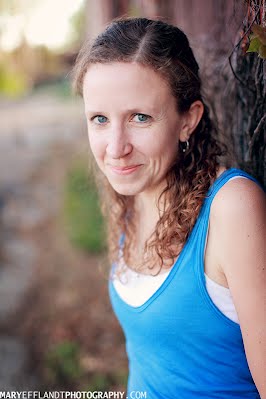In this edition of Aspiring Voices I sat down to chat with ED Martin, author of the forthcoming novel The Lone Wolf. We talked about humanistic psychology and its role in her writing, how finishing her first book led to ideas for more, and the downside of having creative impulses in the morning.

Paul: So I was kind of drawn to the tagline on your website that reads, “…stories of love and betrayal, sacrifice and redemption”. What is it about those things that attracts you as a writer?
ED: I have a degree in psychology, and I really enjoy examining people’s motivations for their actions and reactions. The themes I write about are universal, no matter the genre. So many conflicts people have revolve around love, but for me there’s no story in that. For me, it gets interesting when you have a character who loves someone, but maybe he betrays her somehow. How does she react to that? Or a character loves someone, but her goal isn’t the same as his. What’s he willing to give up to help her? And more importantly, why does one character react one way but another reacts differently? These themes are something we can all relate to; by writing from different perspectives, maybe I can help readers open their minds and better relate to other people.
Paul: How do you think your study of psychology has influenced your writing? When you develop characters do you create like full psych profiles for them or does it manifest in a more organic way as you deconstruct their motivations from scene to scene (or maybe moment to moment)?
ED: I’m a big fan of humanistic psych, which basically says that people are trying to achieve what they think is best for themselves, but at the same time their thoughts and behavior are colored by their perceptions. If the goal of psychology is to help everyone become functional, happy, successful people (however you want to define that), then you definitely need to understand where your clients and patients are coming from. This easily carries over into the concept of an unreliable narrator; you have a character who thinks she’s doing the right thing although the reader knows otherwise. As a writer, you have to make that character believable to readers who don’t see things from the same perspective.
When it comes to my characters, I’m definitely a pantser. I usually have a strong idea of the role the character will play, including attitudes and thoughts, when I start writing, but they often evolve as the story progresses, or in subsequent drafts.
Paul: Interesting. Almost sounds like you’re saying there is no such thing as a truly reliable narrator.
If you’re a pantser when it comes to characters, does that mean you’re an outliner/organized writer when it comes to plot and structure?
ED: For novels I write a basic outline, usually about a sentence per chapter, that includes the major plot points or at least a short summary of each chapter but leaves plenty of room for subplots. I’ve found this works best to keep me on track to get to the ending I want.
For short stories, I just go with it. Sometimes I have the ending in mind, but often I just have the concept and a few plot ideas that flesh themselves out as I write the story.
Paul: So do you prefer the sort of stabilizing force of the structure for your longer work, or are you more drawn to the sort of wild n’ free sense from discovery-writing short fiction? Or are they not that far apart because even in outlined novels you’re still pantsing the characters and subplots?
ED: I don’t see them as being that far apart. I think the only reason I outline my novels is because it takes me months and years to write them, and I know I won’t remember how I want them to end without having something written down. With short stories, not only are they written much more quickly, but there’s more room to play around in them and let them take the path they want; I don’t have to worry about rewriting 50,000 words if I forget to add a major plot point.
Paul: Talk about how you got started writing a little. What was the first story you remember writing where you finished and thought, “Yeah, there’s something here”? When did you decide to start really pursuing it, or have you kind of always been writing?
ED: When I was a kid I loved writing stories, but I grew away from it in high school. In college I focused on academic writing instead of fiction, then afterwards I got caught up with my kid and other hobbies. In 2009 I found out about NaNoWriMo and decided to try it. That novel was horrible, but I realized I had another novel idea I wanted to get out, The Lone Wolf, which will be released by Evolved Publishing in December.
After I finished the first draft of The Lone Wolf, people read it and didn’t hate it; in fact, they liked it. That encouragement opened a floodgate of ideas, both novels and short stories, and I’ve been writing continuously since then.
Paul: So did you start sharing your work with readers after NaNoWriMo or The Lone Wolf or had you been getting feedback prior to that? Do you write with an ideal reader in mind? Is it a specific person or more of a composite entity?
ED: It was after NaNoWriMo that I started looking for feedback and sharing my work, both in the beta/editing stage and later when it’s been published.
Some stories I write with a specific reader in mind, but a lot of the time I’m just writing what I want to write. If I find an audience, that’s great, but it’s not necessary. I’m going to write regardless.
Paul: Do you write every day? What would you say your average output is? Do you have a schedule or routine or are you just kind of squeezing it in wherever you can find the time?
ED: I should write every day, but I don’t. Between working, grad school, a kid, and general internet procrastination, my writing productivity is pretty low. I’ve found, though, that I must have the general plot in my head for a story or I can’t write it; a general concept or characters aren’t enough. I spend a lot of time familiarizing myself with an idea and what form I want it to take, so that when I actually sit down and write it, it comes out very easily—3000-word bursts are pretty common.
As for when I write, I’m a night person and most creative between about 11 pm and 2 AM, so I try to free up time to write then. I also do pretty well in the morning, between about 8-10 AM. Of course, I’m usually working then, so it doesn’t work out so well.
Paul: Are there any tricks you employ to get inspired? Do you have like a notebook you carry around to jot ideas in or a particular environment you find is the most conducive to creativity?
ED: I don’t have any tricks, unfortunately. But I do have a notebook in my purse that I use to jot ideas down. And I have a writing bag I keep in my car, with notebooks and my laptops. Plus the app GNotes on my phone, which lets me write notes that sync with my gmail account.
I also have a folder in Google Docs labeled “Unfinished.” When I get a story idea, I try to open a new document and type as much as I can about the story—character, setting, plot, or maybe a paragraph or two of the story itself. Then when I have time or feel inspired, I can keep writing with all my notes in one place.
Paul: Do you ever find yourself just kind of going over all these little snippets of ideas and story or character concepts and looking for hooks to group a few of them together to create longer works? Or when you come up with ideas do you already have a sense of how long the finished draft is going to be?
ED: I haven’t grouped them into the same story, but I have quite a few stories that are related. I currently have two collections in the works that have recurring characters, and one of those also has the same setting for many of the stories, as well as similar themes.
Generally I can tell how long a story will be based on the idea, especially when I set out to deliberately write flash fiction, but sometimes with short stories I can easily get caught up with added background and subplots and go way over the limit I set myself.
Paul: [laughs] Yeah, it’s easy for me to get caught up in stories and find them suddenly way beyond their initial scope.
Okay, last one: Describe for me the best book you’ve read recently.
ED: I’ve been on a short story and lit fiction kick recently, so I picked up Gabriel Garcia Marquez’s Strange Pilgrims. It’s 12 stories about ordinary people going about their lives. His prose is beautiful, and I love his emphasis more on the characters and their lives than on the plot; some of the stories could probably be considered vignettes. He has a magical realism in there, “Light Is Like Water,” which reaffirms why he’s regarded as such a literary genius, and one of my favorite authors.

ED Martin is a writer with a knack for finding new jobs in new places. Born and raised in Illinois, her past incarnations have included bookstore barista in Indiana, college student in southern France, statistician in North Carolina, economic development analyst in North Dakota, and high school teacher in Iowa. She draws on her experiences to tell the stories of those around her, with a generous heaping of “what if” thrown in.
She currently lives in Illinois where she job hops while working on her novels. Her debut novel, The Lone Wolf, will be published by Evolved Publishing on Dec 2nd, 2013. Read more of her stories on her website, http://www.edmartinwriter.com.

So fun getting to know you better! Glad I happened upon this post!